The Author Blueprint...is like making Pizza?
It’s beginning to look a lot like…the end of the fall! As the weather here in Los Angeles finally (finally!) cools down and we welcome a little bit of rain, I’m up to my eyes in book news. The best book news, all of which I’ll share soon!
I’m still glowing after an amazing trip up to Stanford to teach an on-campus course, Author Blueprint: Pathways to Publishing. We talked about author business plans, and what it really means to understand where your book belongs in the market. (And how to know if it’s not quite there yet.)
We built strong pitches and talked about why, yes, as hard as they can be to identify when you’re finally finished with your novel and ready to go on submission, comp titles in a query do matter.
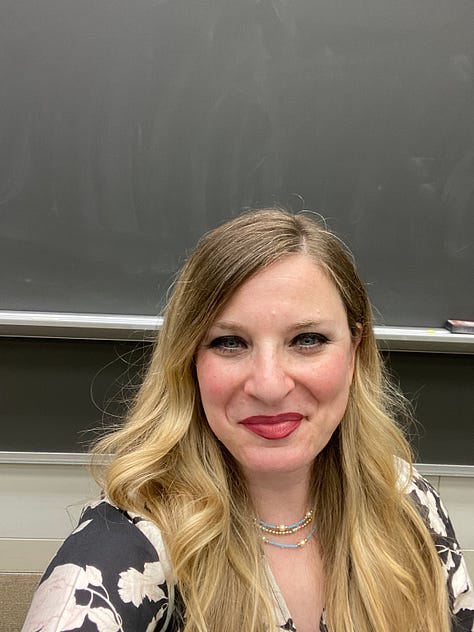
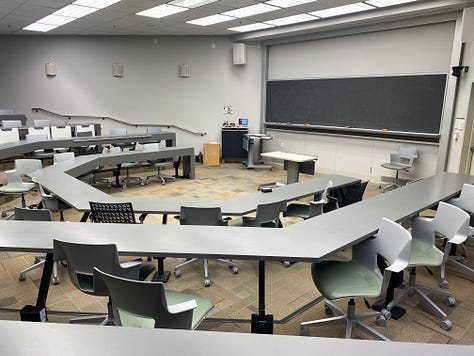
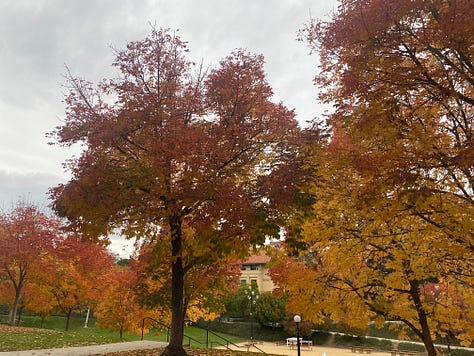
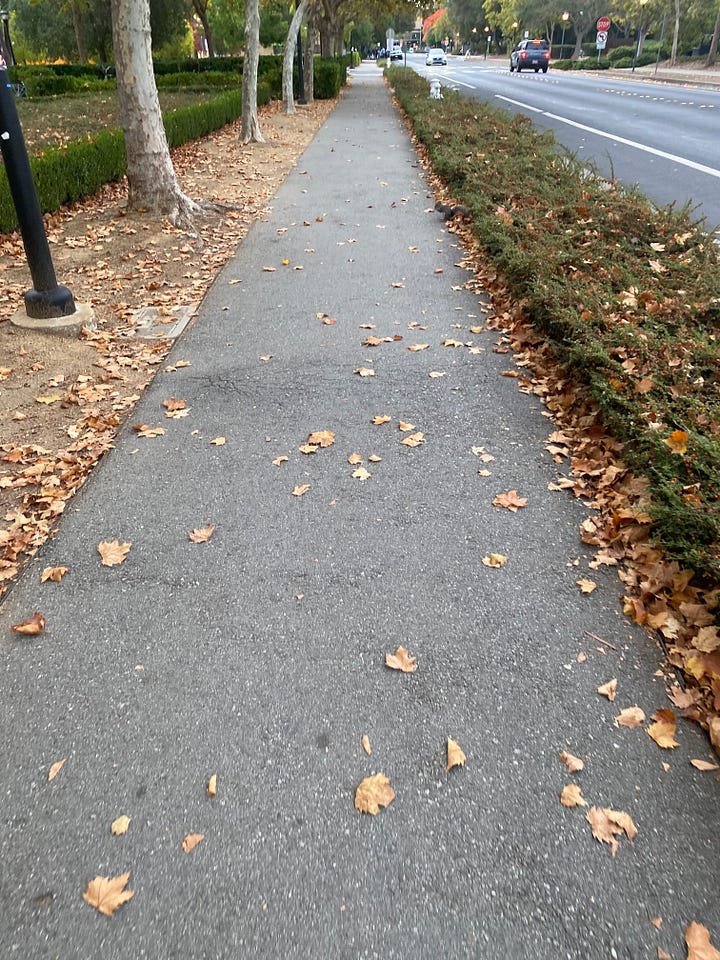
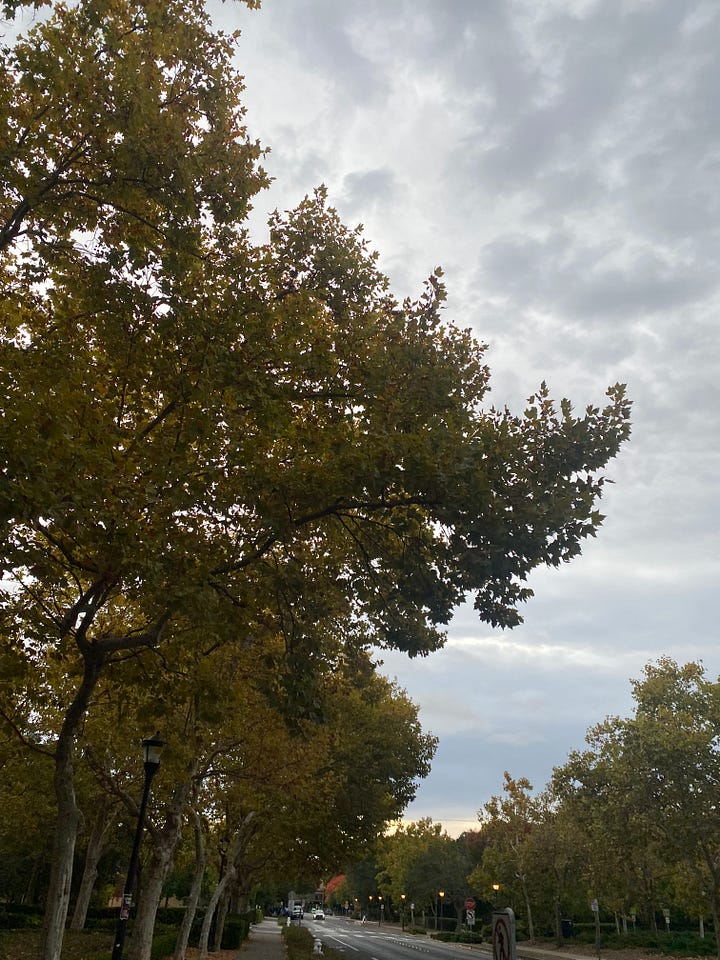
Horribly awkward selfie aside, can we take a moment to appreciate the amazing chalkboard in my classroom? It was anchored on sliders! This vertically challenged person who definitely is in her comfy-shoes era could not have been happier. Modern classroom tech is something else. I love my Zoom sessions, but I relished covering every inch of that chalkboard and seeing faces in real life!
Publishing is Changing…For the Benefit of the Author
This year has been full of changes in publishing. We’re seeing self-published authors continue to forge paths to sustainable careers while traditional publishing grows more agile. Sourcebooks has cracked the Big Five in total units sold, and part of that strategy has included bringing successful indies into trad spaces.
I don’t think this is just the optimist in me talking. I really believe there has never been a better time to be a career author.
In some ways, yes, the burdens have shifted. When was the last time you heard an author received an R&R (revise and resubmit) invitation from an agent? I’m sure they still happen, but the competition is so stiff and the number of great storytellers in the market is so high, authors increasingly need to hire private editors and take courses or workshop their unpublished work to deliver a ready-to-publish product if they want to see traction in the trad market.
This isn’t inherently a bad thing, but it does make the timeline to sustainable income longer for authors and the price tag attached to building an author career more expensive. I’m an editor and teacher at heart, so I recommend what I always do for authors: read, study, learn.
The author blueprint: read, study, learn. Then write and write better.
Occasional Home Cooking Doesn’t a Chef Make
If that means taking a course or hiring an editor, get recommendations and testimonials. Spend your money wisely and treat every penny you spend like an investment in your long-term author career. You might get more out of a one-hour coaching session with a content editor than a ten-week class. You might learn a career’s worth of lessons with one in-depth content edit. There is no “one-size-fits-all” strategy to publishing success, so be honest, dig deep, and source your tools.
Once you’re widely read in the genre you want to publish in, there is no substitute and no shortcut: You’ve got to write, write badly, revise, write more, write better. I really believe that writing is like any physical activity. You cannot get great at it if you only do it once in a while. A brilliant chef doesn’t make flawless, delicious, and memorable meals by scrolling food blogs and cooking a meal from scratch every once in a while.
A great chef is a fan, an engineer, and a lifelong learner—always trying, testing, tasting. Whether you’re cooking up pizza, sushi, steak, vegan cuisine, pastries or cookies, how long will you study your craft, practice, and share samples with friends and family before you’re ready—really ready—to open a restaurant?
That’s really a huge component of the Author Blueprint: What do you cook in the pages of your book? Who is it for? What do you know your ideal reader wants and how effectively does your book deliver on that? Are you a hobbyist author or working toward a career? Both are great! No shade to either, but a sustainable career isn’t a hobby. You’ll need time, a business plan, and some really, really great books.
And then, once you have the draft complete, does your pitch convey that you know your reader, the market space you’re writing in, and how a publisher can profitably sell your book?
Sample Pitches
That leads to the heart and soul of selling your book: the pitch. Which of these would you be more excited to read?
What would you do to your enemy if it meant saving your business and healing your heart?
or this:
A Wednesday Addams-esque love potion maker/cynical couples’ therapist opposed to all forms of magical manipulation must make her rival fall madly in love with her in order to create a rare hatred-to-love elixir that will save her failing business.
This isn’t my client or project, but examples of really great pitches are in almost every deal announcement in Publishers Marketplace:
The first example is like a home-cooked meal: edible but forgettable. Sustenance, sure. But which pitch would you get excited to pay money for the experience? The first example touches on some vague but relatable aspects of the romance genre; the second pitch nails who the book is for, what it’s about, the stakes, the characters, and the conflict—in one pretty concise sentence. Your Author Blueprint might start vague and unsteady, but you can learn, grow, and make a heck of a terrific career out of writing.
Let’s Make Pizza in 2026
As you head into the close of 2025, what are you reading? Writing? Doing to develop your author business? The Book Genie crew is hard at work. We’re teaching classes, holding workshops, and we’re open with limited availability over the month of December if you’d like to schedule a Zoom for accountability, coaching, or business planning.
Now Enrolling Romance I at UCLA Extension
Enrollment Opens 12/1: Love and Lore-Romantasy Writing Workshop at Stanford Continuing Studies
This winter, I’ll be teaching Novel IV at Stanford and two romance-writing classes, so if you’re thinking a group environment, lectures, and feedback on your assignments is right for you, I’d love to see you in class. (No chalkboard this time around. I’ll see you online!)
Some Books that Had Me Up Late This Fall
I read a lot this fall, and I have to recommend a few.
The Blonde Identity by Ally Carter is a spy romance with action, heat, and a ton of laughs. I’ve had this author on my TBR thanks to author Charlotte Wittwer and I’m so glad I finally read this one!
I love Simone St. James and her paranomal horror/thrillers, and The Sun Down Motel was fantastic! Great spook season read, but not as scary as Murder Road.
I’m a fan of horror and thrillers, and Don't Open Your Eyes by Liv Constantine was a solid read. I enjoyed the plot twists and turns, but the tension was a little lower than I would have liked. Still, I’ll read this author again and I was not disappointed.
In honor of spooky season, I also read Bird Box by Josh Malerman, Suicide Forest by Jeremy Bates, The Lost Village by Camilla Sten, and Overgrowth by Mira Grant. These were all far less scary than I’d expected but solid reads.
Mia Sosa’s When Javi Dumped Mari and Maria Vale’s Molly Molloy and The Angel of Death were unexpected delights (Mari made me laugh out loud and Molly made me cry!)
Have a great Thanksgiving if you’re reading this post in real time. And happy writing, editing, and publishing, my friends!




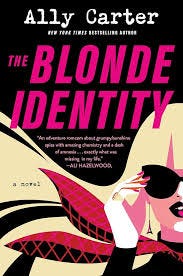
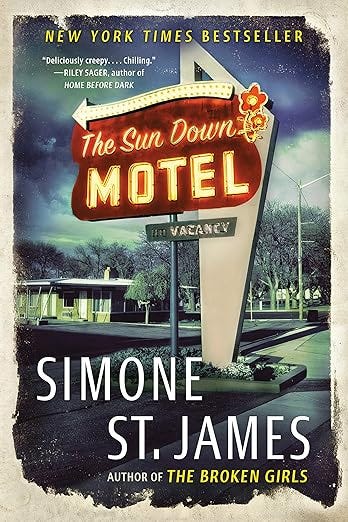
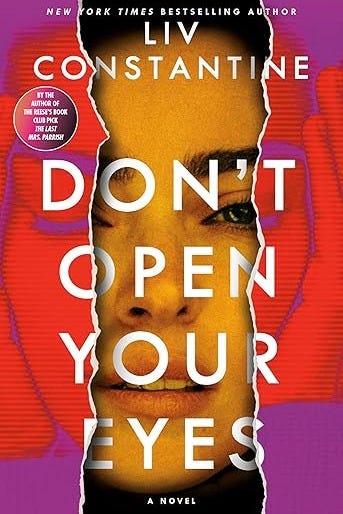
Hey! Great to see you back. 😎🔥
Oh, such good insights on publishing...and man The Blonde Identity is just an awesome, fun book!